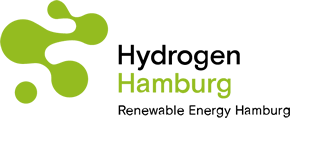Details
Wind energy strengthens the energy sector’s viability in the Baltic region From Hamburg to the World: Hamburg and Latvia expand cooperation
Cooperation with countries bordering the Baltic Sea is an important part of the Renewable Energy Hamburg's internationalisation strategy with a focus on wind energy.

The Baltic states, including Latvia, are striving for energy independence and are focussing heavily on the expansion of renewable energies and electricity transmission grids. There is considerable interest in working with Hamburg, and the potential business opportunities for EEHH members are promising.
Independence through the expansion of wind energy
Latvia is one of the countries in the Baltic region with the greatest potential for expanding the offshore wind energy sector. EU estimates suggest that up to 14.5 gigawatts could be installed off the Latvian coast. Latvia has joined forces with Estonia to plan the construction of a transnational offshore wind project called ELWIND. The Estonian government has set itself the target of using renewable energy to cover at least 50 percent of energy consumption by 2030 and intends to invest heavily in renewable energies. Drawing on assistance from the European Investment Bank, the Estonian company Enefit Green is building Tootsi (800 megawatts), the largest onshore wind farm in the Baltic region. Other tenders and projects are in the pipeline.
The expansion of renewable energies is receiving additional impetus after the three Baltic states left the Russian and Belarusian interconnected grid in February 2025 and joined the continental European electricity grid.
German Latvian Renewables Roundtable
A 180-strong delegation travelled to Hamburg on 24 September, led by Viktors Valainis, Latvia’s Minister for Economic Affairs. The delegation included 20 company representatives from the renewable energy sector. The REH Cluster Agency organised the German Latvian Renewables Roundtable in cooperation with the Latvian Embassy and the Latvian Business Development Agency, creating a special opportunity for professional networking and discussion about business opportunities between leading companies from both countries.
Economic Minister Valainis and Hamburg's Energy Senator Katharina Fegebank used their opening speeches to emphasise that cooperation in the field of renewable energies is essential for strengthening energy security in the Baltic Sea region. Hamburg – with its strong network of companies in the wind energy sector especially – can support Latvia on its path to climate neutrality and an independent energy future. In their keynote speeches, Nordex, Luxcara and Hamburger Energiewerke outlined the plans that Hamburg and REH members are considering to shape the energy transition in Germany.
As Europe's leading manufacturer of onshore wind turbines, Nordex has a strong track record of success in Latvia. Norbert Dwenger, Head of New Market & Eastern Europe, announced: Sia Laflora Energy ordered 16 turbines from Nordex in September 2024 for the 108 megawatt wind farm in the southwest of the country. Nordex is cooperating with the Latvian precast concrete manufacturer Consolis to produce hybrid towers and supply components for the Laflora project, which will bolster the local supply chain. The wind farm is a full subsidiary of Latvenergo, the state-owned energy provider. Commissioning of the facility is slated for the summer of 2026. Nordex also received an order in summer 2025 for the delivery and installation of 21 turbines for Latvia's largest wind farm to date – Pienava with a capacity of 147 megawatts.
Luxcara, an independent asset manager domiciled in Hamburg, is a specialist for investing in and operating sustainable energy infrastructure. Malte Paul, Senior Manager, used his talk to address specific projects in Europe. Luxcara has so far been awarded the contract for the construction of two offshore wind farms in the German North Sea. Marking the company’s entry into the German offshore wind market, the Waterkant project has a capacity of 270 megawatts and is scheduled for completion by the end of 2028. Named ‘Waterekke’, a 1,500 megawatt wind farm with 97 Siemens Gamesa turbines will be built and connected to the national transmission grid in 2029. Luxcara is also a consortium partner in the pilot project entitled Hamburg Green Hydrogen Hub. Luxcara is planning its first wind and solar plants in Latvia.
The heating transition is also a key element in the energy transition, as the sector accounts for around 40 percent of CO2 emissions in Germany. Hamburg is a model region in this field. Dr Steffen Bechtel, Head of Policy & Fundamental Issues, discussed the status quo of the Energiepark Hafen and Energiepark Tiefstack flagship projects, which are driving transformation towards a climate-neutral future of heating and the phase-out of coal in Hamburg.
Laura Štrovalde, Deputy Director at the Investment and Development Agency of Latvia, provided insight into the strategy, innovation and perspectives in connection with the expansion of renewable energies in Latvia. The Latvian government is aware that the expansion of renewables will be accompanied by growing demand for grid capacity. Providing reliable transmission and distribution grids is therefore becoming a main concern within energy policy. Almost 70 percent of the country’s electricity already comes from renewable sources, most of it from hydropower. The expansion of wind and solar energy will gather pace in the years ahead. Moreover, land prices and electricity costs are comparatively low in Latvia (long-term: EUR 50-60/MWh pay-as-produced PPA), which create an attractive framework for the growth of digital and AI-based infrastructures such as data centres.
The event drew to an end with a visit to the Hamburg-based hydrogen technology company Quest One. During a guided tour of the Gigahub, the Latvian business delegation learnt more about the development, research and production of innovative PEM electrolysers and electrolysis stacks. The Gigahub was opened in October 2024 in a ceremony attended by Federal Chancellor Olaf Scholz and Hamburg's First Mayor Dr Peter Tschentscher. Once all stages in its construction have been completed, the 12,000 square metre site will be home to highly automated series production with a total capacity of over 5 gigawatts per year. The Gigahub marked the beginning of a new phase in Hamburg’s hydrogen ramp-up.
The REH Cluster Agency extends its thanks to participating member companies for their thoughts and support and looks forward to continuing the positive collaboration with Latvia.


